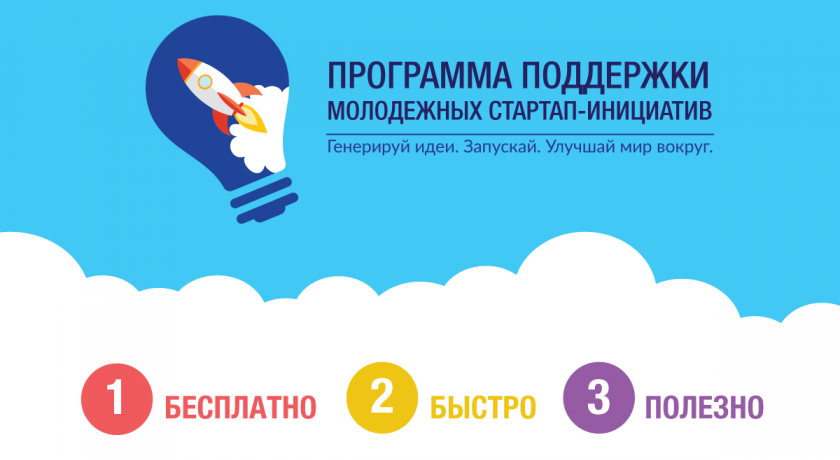
‘STARTUP INITIATIVES’ Programme to support launching of 33 startups
33 teams have successfully passed three stages of the competitive selection process and will participate in the three-month ‘Startup Initiatives’ Programme, which will kick off on August 8, 2016.
The projects selected to take part in the Programme are from such areas as ICT and information security systems, agriculture, transport and road infrastructure, medicine, finance and payment systems, smart home, textiles and fashion, Internet of Things, restaurant business, education, law and other.
During the Programme participants will learn about the Lean Startup methodology, elaborating Road Map of project development and creating prototypes of products, and testing first hand sales. In addition, selected teams will have opportunities to consult with the trackers on startup development and attend weekly group traction meetings to track and analyze achievements and mistakes.
At the end of the three-month Programme at the ‘Demo Day’ event graduates will have opportunity to present their startups to investors.
It should be noted, that the selection cycle of the Programme started at the beginning of this year. Within a month after the Programme announcement, 308 applications from 33 universities were submitted. Based on the preliminary results of the selection process, 196 projects were selected and interviewed. 66 of them attended the training on presentation skills and elaborated their projects under the supervision of individual trackers. At the final stage, 57 teams presented their projects to the experts. The experts were invited from government ministries and public institutions, private sector and NGOs offered their recommendations on how to improve the projects presented.
“I was interested in this Programme because I wanted to learn about doing business as much as possible, communicate with successful entrepreneurs and learn from their experience,” says Shukhrat Agzamov, a finalist of the Programme from the Tashkent University of Information technologies.
“We have already tried to launch a startup of ours – the ‘dovezu.uz’ mobile application. When we launched it, we had no clue about business processes, so we failed to include many important details in the project. Under this Programme we are going to rebrand our project, choose an appropriate project title, refine its concept and restart the application.”
In order to help young, innovative and ambitious people such as Shukhrat, the Programme specialists studied international experience and best practices regarding acceleration Programmes. In particular, one expert of the ‘Business Forum of Uzbekistan (Phase III)’ project participated in the HSE (Higher School of Economics) Business Incubator and IIDF (Internet Initiatives Development Fund) Summer School.
IIDF is one example of how the Russian government supports the development of the startup industry. The Fund started its operations in 2013 with RUB 6 billion. To date, 8.5 thousand projects participated in IIDF Programmes and over 200 projects have formed the Fund’s portfolio. It is noteworthy, that the organization promotes the development of the regulatory framework for startups. In particular, it is currently exploring venture markets.
President Islam Karimov highlighted in his report that "today ICT accounts for about 5.5 percent of the global GDP, and, as estimated by authoritative international experts, by 2020 this figure will reach 9 percent. For example, in Korea the share of the ICT sector in the country's GDP is more than 11.8 per cent, in Sweden – 7, in the USA - 6.8 percent." Whereas, in 2015 the ICT share in Uzbekistan's GDP accounted for about 2 per cent.
The project experts had studied the international experience of business incubators and accelerators and benefited from several educational programs in this area. The knowledge they had gained in combination with their work experience has enabled the project team to prepare a comprehensive educational Programme and develop training materials and templates for the implementation of startup projects.
It is expected that the Programme methodology of supporting startups in the early stages of development will receive widespread replication and will be used extensively not only by the Uzbek universities, but also by the country’s private sector. In the future, the methodology will help improving systems and mechanisms universities’ interaction with the private sector, facilitate the integration of higher education with industrial production, help creating new jobs and, ultimately, boost the ICT share in the national GDP.
In addition, the project team intends to carry out a series of activities to raise public awareness on startups and approaches to start and develop a business and promote innovative technological entrepreneurship.
The initiative is implemented as part of the inclusive business model promotion project aimed at creating new jobs, improving youth employment and public welfare under the ‘Business Forum of Uzbekistan (Phase III)’ joint project of Chamber of Commerce and Industry of Uzbekistan and UNDP in Uzbekistan. The project benefits from the financial support of South African Company 'Sasol', British Embassy in Uzbekistan and the Management Training Programme (MTP) of EU.
 08.08.2016
08.08.2016
 16:53
16:53


 Кабинет:
Кабинет:
 Войти
Войти
 Регистрация
Регистрация
 View:
View:
 Язык:
Язык:
 Entrepreneur's office
Entrepreneur's office 

 Legal entity
Legal entity 



